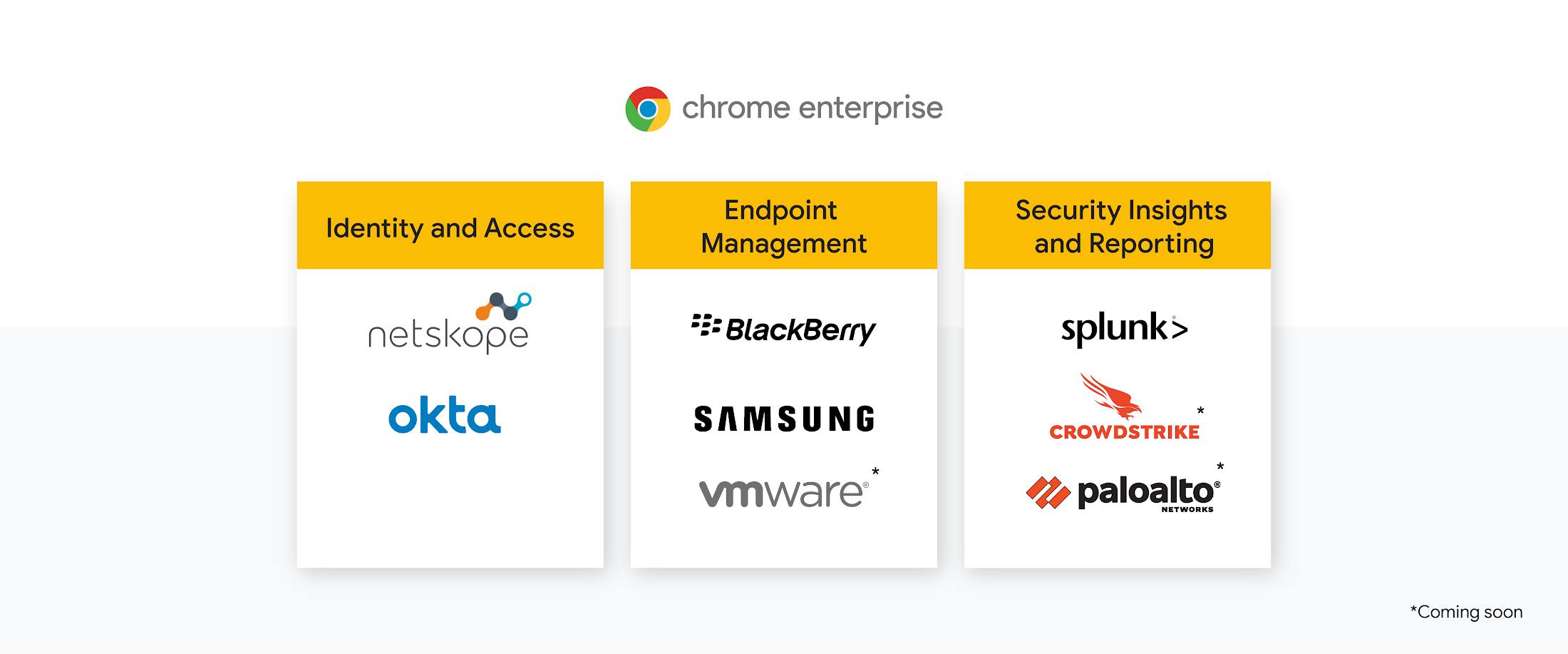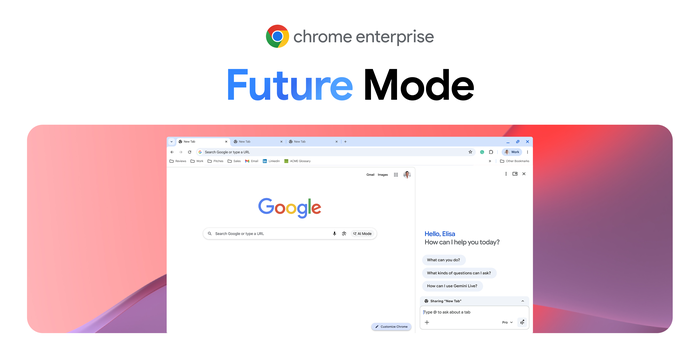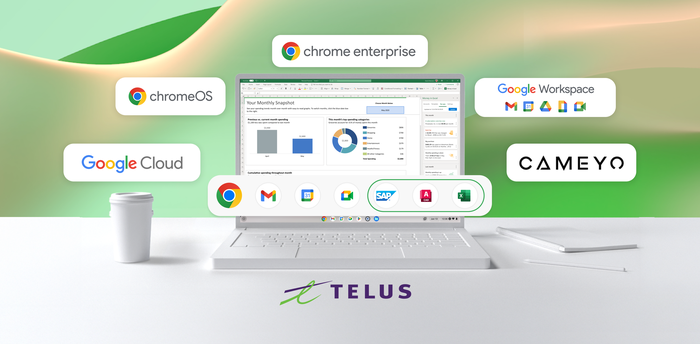Building an integrated ecosystem to keep your enterprise secure

John Solomon
Vice President and General Manager, Chrome OS
Building a more integrated ecosystem to keep your enterprise secure
It isn’t always clear where your next threat will come from, but being prepared is the best possible response plan. As you steer your enterprise through an increasingly complex world, you need to be ready to thwart cyberattacks online. At Google, we have always been committed to protecting users online from cyberattacks, from Chrome browser, which protects billions of devices daily with Google’s Safe Browsing technology to Chrome OS devices, which have never had a reported successful ransomware attack, nor has there been any evidence of a documented, successful virus attack.
But protection against online threats requires more than securing an endpoint or browser - it requires securing the full computing stack, from silicon to cloud. To further that goal, we’re announcing new ways to help you stay prepared for potential security threats with:
New partner security integrations
New data controls in Chrome OS to help secure your data
Latest hardware updates to keep your enterprise safe
Together, these new features help accelerate our goal of moving organizations from legacy systems to more secure, cloud-first platforms, while also streamlining IT workflows.
New partner security integrations
To help security teams better manage the tools they need to use, we’re introducing the Chrome Enterprise Connectors Framework, a collection of plug-and-play integrations with industry-leading security solution providers. These integrations offer better protection for users and endpoints, and give IT teams more tools to report on security incidents. Overall, we’re making it easier to help organizations work toward a Zero Trust model.
Integrations are available right now for Chrome browser and Chrome OS in these areas:


- For identity and user access, the Netskope Security Cloud integrationNew optimizes user access to critical data, based on verifying the user, the device, and the action requested by the user. The Okta Identity Engine’s policy support for Chrome OS provides IT with robust and flexible authentication controls.
- For Endpoint Management across mobile and desktop, the BlackBerry® UEM integrationNew and Samsung Knox Manage integrationNew now allow IT to manage Chrome OS devices, all in one pane of glass. In addition to these two new integrations, VMware Workspace ONE will update its existing integration to the new Chrome Policy API and will be available through our Trusted Tester Program soon.
- For Security Insights and Reporting, Chrome browser reporting integrations afford IT teams added visibility into security events across Google Workspace and Cloud products and leading partner solutions. For example, the Splunk Cloud Platform integrationNew gives IT actionable insights into potentially risky events like navigating to a malicious site, downloading malware, and reusing corporate passwords. Palo Alto Networks and CrowdStrike integrations will be available through our Chrome Enterprise Trusted Tester Program soon.
New data controls in Chrome OS to help secure your data
It is absolutely critical to protect your most sensitive data from being leaked or stolen. Chrome OS Data ControlsNew will prevent data leakage on endpoints by allowing IT to define rules within Chrome OS on when to trigger controls for different actions, including copy and paste, screen capture, printing, and other activities that could lead to data loss. You can request access to the Trusted Tester Program here. Stay tuned for updates.
Latest hardware updates to keep your enterprise safe
Device security is equally important for both end users and IT. HP Elite Dragonfly Chromebook, the first Chrome OS device with Intel vPro® Enterprise, allows users to work confidently with features like HP Privacy Camera, Fingerprint Sensor, and optional HP Sure View privacy screen. HP Proactive Insights provides IT with access to critical device health, performance and security insights to resolve problems before they happen. Sign up for a free trial here.
Intel vPro® Enterprise for Chrome OS provides comprehensive hardware-based security via two key features: Key Locker, which can protect disk encryption keys and prevent leaks, and Intel® Total Memory Encryption (Intel® TME), which helps ensure data leaving the chip to system memory is encrypted.


How to get started
That was a lot to digest, so here’s how to try out all these new features.
Get started with the Chrome browser and Splunk integration today right in Chrome Browser Cloud Management.
Request access to the Chrome Enterprise Trusted Tester Program. Palo Alto Networks and Crowdstrike Chrome browser integrations will be available soon.
Take advantage of HP’s free trial of Proactive Insights, compatible with a variety of HP Chrome OS devices.
Register for Chrome Enterprise Day on June 8, 2022 to learn more about the latest solutions in the Chrome Enterprise ecosystem, including all the integrations mentioned in this blog.



